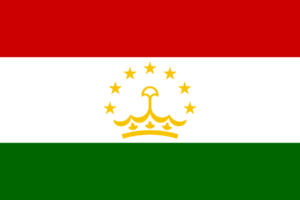The ICJ today welcomed that Nepal’s National Human Rights Commission (NHRC) has been made a constitutional body under the Interim Constitution.
But the ICJ also urged the current Government and the future Constituent Assembly to address concerns about the appointments procedure.
“Making the NHRC a constitutional body will bring a welcome increase in the stability and authority of the Commission”, said Nicholas Howen, Secretary-General of the ICJ.
“However, the procedure of appointing Commissioners set out in the Interim Constitution is too dominated by the executive and will weaken it as a body that should be truly independent of the government”, he continued.
“With such concerns already being expressed, it is even more vital that the Commissioners appointed possess unquestionable integrity, expertise and independence, that they are appointed after a transparent and wide consultation process and that the final Constitution sets up a more independent appointments procedure,” urged Nicholas Howen.
To be recognized as a legitimate national institution, a human rights commission needs to comply with the letter and spirit of the Principles relating to the Status and Functioning of National Institutions for the Protection and Promotion of Human Rights (Paris Principles), adopted by the United Nations General Assembly Resolution 48/134 on 20 December 1993. Under the Paris Principles, a national human rights commission must be “pluralist” and must be independent from the government of the state, in the way it is first created, in the way members are appointed and in the operation of the commission.
While the provision that diversity and representation of women will be maintained among the Commissioners of the NHRC is a welcome expression of the spirit of the Paris Principles, concerns have been raised as to whether the recommending body, the Constitutional Council, would comply with the Paris Principles.
The Constitutional Council, comprised of the Prime Minister, the Chief Justice, the speaker of the legislature and three ministers designated by the Prime Minister, is disproportionately dominated by members of the executive, which will bring into doubt the independence of the Commission it appoints. The ICJ is concerned that this could also adversely impact on appointments to other constitutional bodies.
The Interim Constitution provides that prior to the appointment of officials to constitutional bodies, a parliamentary hearing must be held. “Public parliamentary debate is a significant step in ensuring that transparent, consultative and participatory appointments are made to constitutional bodies, such as Nepal’s National Human Rights Commission”, said Nicholas Howen.
“An independent and effective NHRC is so important to help ensure the political environment in the coming year allows free and fair debate and elections, and that all parts of society are able to participate freely in the critical discussions ahead”, said Nicholas Howen.
“The NHRC will have to monitor the actions of the government and all security forces, intervene to protect human rights and speak out in public. This will require a Commission that is not beholden to any political interests and that will act without fear or favour”, concluded Nicholas Howen.
The ICJ welcomes the continued efforts of the staff of the NHRC, in difficult circumstances, to promote and protect human rights and calls on the future Interim Government of Nepal to follow up on the recommendations of the NHRC.
Nepal-NHRC independence appointment process-Press releases-2007 (full text, PDF)





